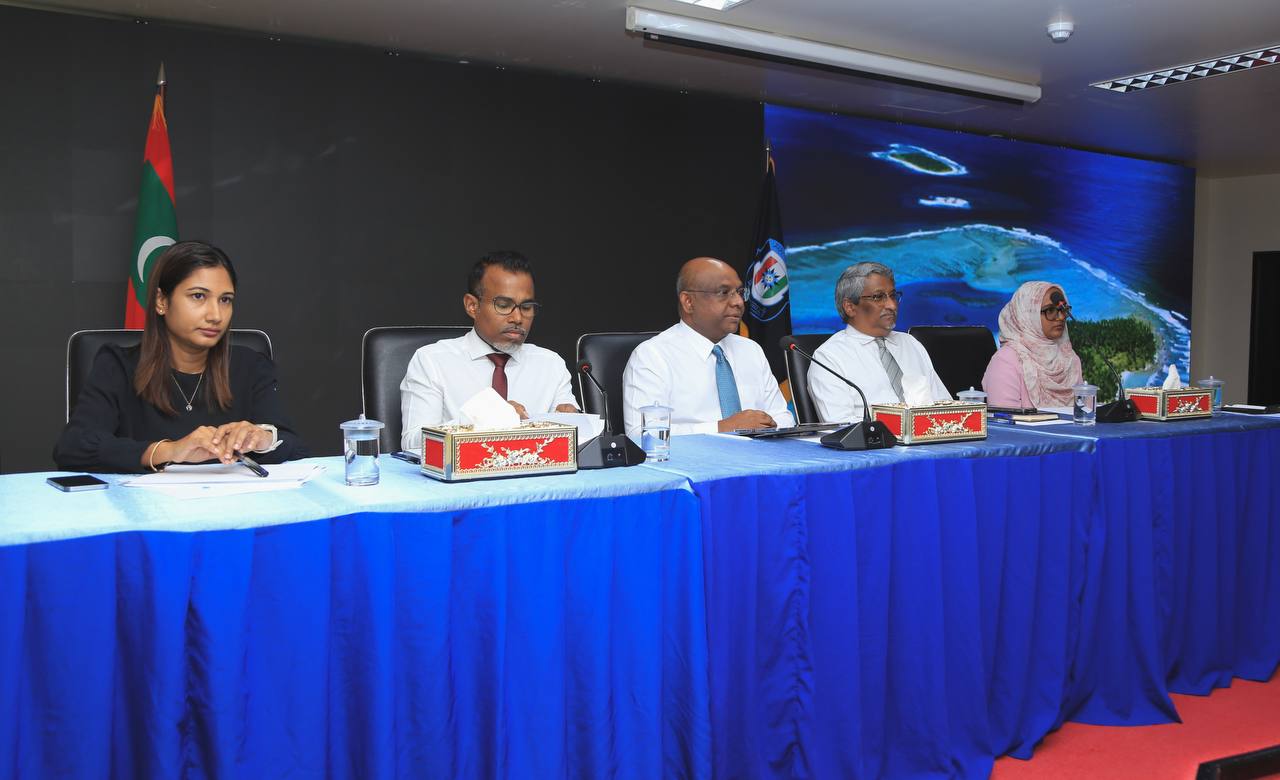The Maldivian government has denied claims made by the Progressive Congress Coalition that it has retracted its stance on the ongoing dispute regarding the delimitation of the maritime boundary of the Exclusive Economic Zones of the Maldives and the Chagos Archipelago.
The government confirmed that it remains firm in its position concerning its EEZ and is determined to pursue its claims at the International Tribunal on the Law of the Sea (ITLOS).
According to the statement issued by the Maldivian government, it informed the Government of Mauritius that it would vote “yes” in the General Assembly resolution entitled “Advisory Opinion of the International Court of Justice on the legal consequences of the separation of the Chagos Archipelago from Mauritius in 1965” if it were considered again.
The government explained that this decision was based on ITLOS’s announcement that the ICJ advisory opinion on Mauritius’ sovereign rights over Chagos would be fully accepted in the ongoing case.
The Maldives clarified that its support for Mauritius’ claim on sovereignty over Chagos does not prejudice or change its ongoing claims at ITLOS concerning the delimitation of the maritime boundary between the Maldives and the Chagos Archipelago.
The Maldives government denied allegations made by the Progressive Coalition that the President acted outside of his constitutional mandate with regard to this matter.
The government explained that Article 3 of the constitution requires the Majlis to be consulted if there are any changes to the Maldives’ territorial boundaries within 12 miles from the coastline.
However, in this case, the dispute concerns the Maldives’ southern Exclusive Economic Zone, whose boundaries have never been determined by the Law of Sea Convention.
The government maintains that setting the boundaries of the EEZ as stipulated in domestic and international law is well within its mandate and that it will fulfill those obligations.
The Maldives government expressed its disappointment at attempts by political parties to mislead the Maldivian public and the international community on this issue.
It reiterated its confidence that the dispute over the delimitation of the maritime boundary between the Maldives and the Chagos Archipelago will be resolved in a fair and equitable manner by ITLOS, taking into consideration the arguments put forward by the Maldives on this matter.
The Maldives government has confirmed that it has not retracted its stance on the ongoing dispute concerning the delimitation of the maritime boundary of the Exclusive Economic Zones of the Maldives and the Chagos Archipelago.
It has also denied allegations that the President acted outside of his constitutional mandate with regard to this matter. The government remains confident that the issue will be resolved in a fair and equal manner by ITLOS.
Background of the issue:
In July 2010, Maldives submitted its claims to the United Nations for an extended continental shelf and new coordinates that claimed the full 200 nautical mile EEZ measured from Addu Atoll, the southern-most atoll in the country. This ignored the 1992 understanding with the United Kingdom and was also inconsistent with Maldives’ previous willingness to negotiate overlapping EEZs with Sri Lanka and India, its northern neighbours.
Maldives argued that Chagos was a unique case because it does not possess a population dependent on fishing, or indeed any permanent population at all – an argument apparently not supported by the UN Convention on the Law of the Sea (UNCLOS), which allows EEZs to be claimed for any habitable island whether or not it is inhabited.
Mauritius then entered the fray, protesting against both the United Kingdom and Maldives. Maldives did not officially take any position over Chagos sovereignty and had previously declined to negotiate with Mauritius over maritime boundaries. However, in 2011, President of Maldives Mohamed Nasheed, during a visit to Mauritius, issued a joint communiqué stating that the two countries would make a “collective stand” against the United Kingdom in relation to their extended continental shelves and EEZs.
But when Maldives failed to implement this apparent new understanding, Mauritius initiated legal proceedings against both Maldives and the United Kingdom. Its action against the United Kingdom resulted in the International Court of Justice (ICJ) issuing an advisory opinion in 2019 that the decolonisation of Mauritius from the United Kingdom had not been lawfully completed and that the United Kingdom should end its administration of the islands as soon as possible (which the United Kingdom has effectively ignored).
Mauritius also brought an action against Maldives before the International Tribunal for the Law of the Sea (ITLOS), including expanded claims of Chagos’ EEZ measured from new baselines. This was to Maldives’ distinct disadvantage, creating even greater overlap of their EEZs of some 96,000 square kilometres. In January 2021, ITLOS rejected Maldives’ argument that the tribunal had no power to hear claims involving disputed sovereignty over Chagos.
The Special Chamber of the tribunal also accepted Mauritius’ claim that the ICJ had already determined the archipelago was an integral part of Mauritius. The substance of the case is yet to be decided upon.





